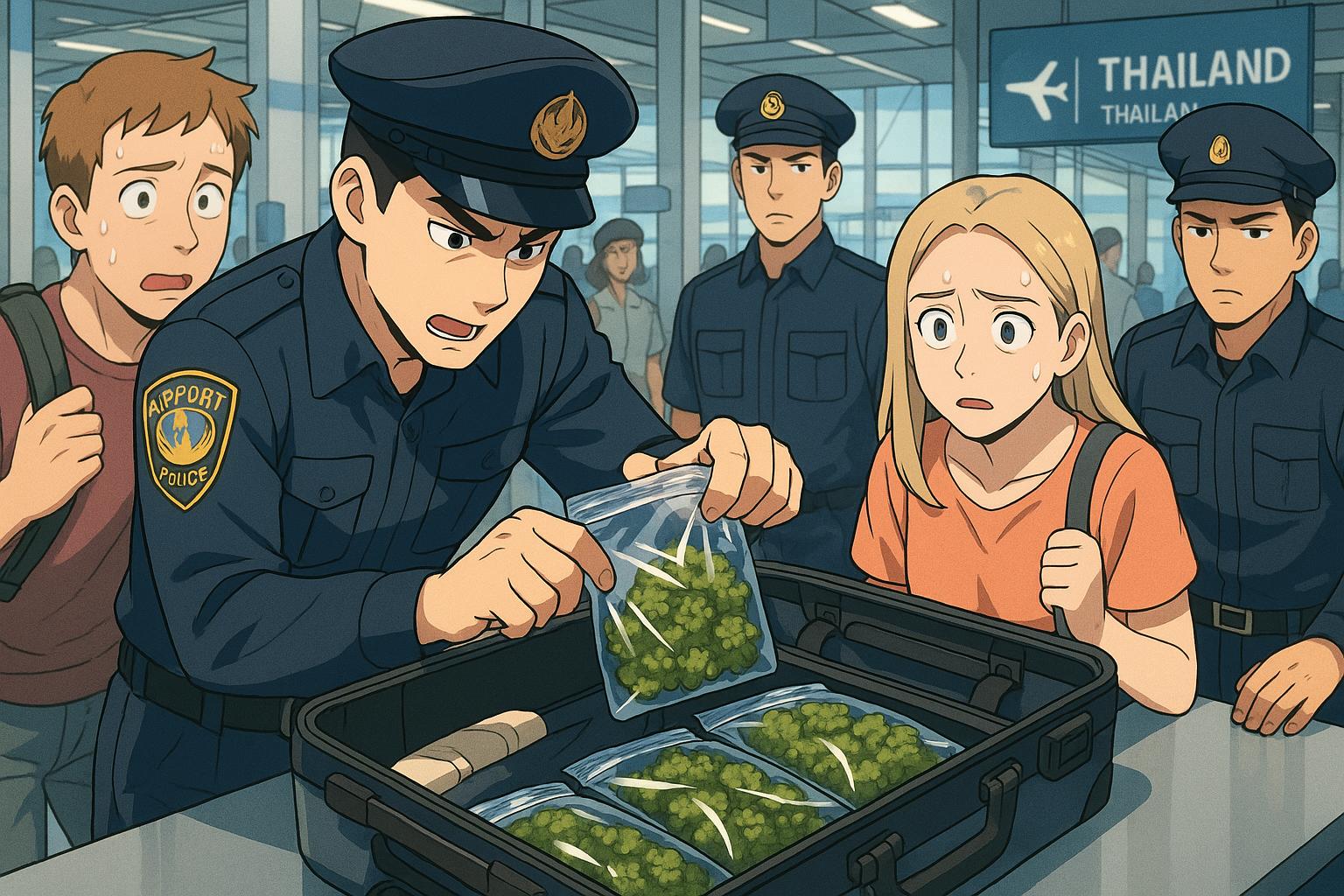Authorities in Thailand are intensifying their crackdown on cannabis smuggling, driven by a notable increase in cases involving tourists attempting to transport the drug abroad. Airport officials report that inspections have been tightened, revealing a concerning trend where many of those caught are foreign nationals, predominantly from the UK and India. This uptick in smuggling incidents coincides with the impacts of Thailand's 2022 cannabis decriminalisation, which aimed to harness both tourism and agricultural benefits.
Recent arrests highlight the severity of the issue, with two young British women apprehended in Georgia and Sri Lanka after it was discovered they had attempted to smuggle cannabis from Thailand. The UK government disclosed that a joint operation with Thailand led to the seizure of over two tonnes of cannabis from air passengers earlier this year. Alarmingly, since last July, more than 50 British nationals have faced arrest in Thailand for alleged smuggling activities, reflecting a pronounced trend that raises significant public safety concerns.
Thailand made history in 2022 as the first Asian nation to decriminalize cannabis, a bold move that initially promised substantial economic benefits, including an influx of tourists and revitalization of the agricultural sector. However, this rapid proliferation of cannabis outlets has led to growing public unease. Critics assert that insufficient regulations have rendered cannabis too accessible, especially to minors, while incidents of addiction appear to be on the rise. The ruling Pheu Thai Party has pledged to recriminalise cannabis, but this proposal has met resistance from coalition partners supportive of the continuation of decriminalisation. This dynamic underscores the complexities facing Thailand as it navigates the socio-economic and legal ramifications of its cannabis policies.
Health Minister Somsak Thepsutin recently announced plans for new regulations to control cannabis sales more effectively. These regulations include mandates requiring prescriptions for cannabis purchases, reflecting a shift towards a more regulated approach. Officials have also reiterated that transporting cannabis out of the country without proper authorisation is a serious crime under Thai law.
Significant smuggling activities have surfaced at airports, particularly in the holiday hotspot of Samui Island, where a remarkable seizure involved 375 kilograms of cannabis concealed in suitcases, leading to the arrest of 13 foreign suspects, many of whom were British. These individuals were allegedly recruited under the guise of enjoying a holiday, only to be turned into drug mules tasked with transporting the contraband to destinations like the UK and Singapore. In some cases, they were promised substantial payments of approximately £2,000 for their efforts, a disturbing incentive that exploits vulnerable tourists.
The escalating smuggling operations are part of a broader pattern of international cannabis trafficking. Similar trends have been noted in other Southeast Asian countries, where links to organised crime networks further complicate the issue. In Indonesia, for instance, authorities recently disrupted a smuggling operation involving marijuana hidden in everyday items, sourced from Thailand and intended for export to Europe. Such instances raise urgent questions about cross-border drug trafficking and the efficacy of current law enforcement measures.
With ongoing investigations revealing an intricate web of criminal activities involving unwitting tourists, Thailand's authorities are faced with a formidable challenge. The potency of organised crime complicates efforts to regulate cannabis while simultaneously capturing the profits and individuals involved in this burgeoning underground economy. As Thailand grapples with the consequences of its decriminalisation initiative, the need for stringent regulations and robust enforcement mechanisms has never been clearer.
##Reference Map:
- Paragraph 1 – [1], [2]
- Paragraph 2 – [1], [2], [6]
- Paragraph 3 – [1], [2], [5]
- Paragraph 4 – [1], [7]
- Paragraph 5 – [2], [4]
- Paragraph 6 – [5], [6]
- Paragraph 7 – [3], [4]
Source: Noah Wire Services
